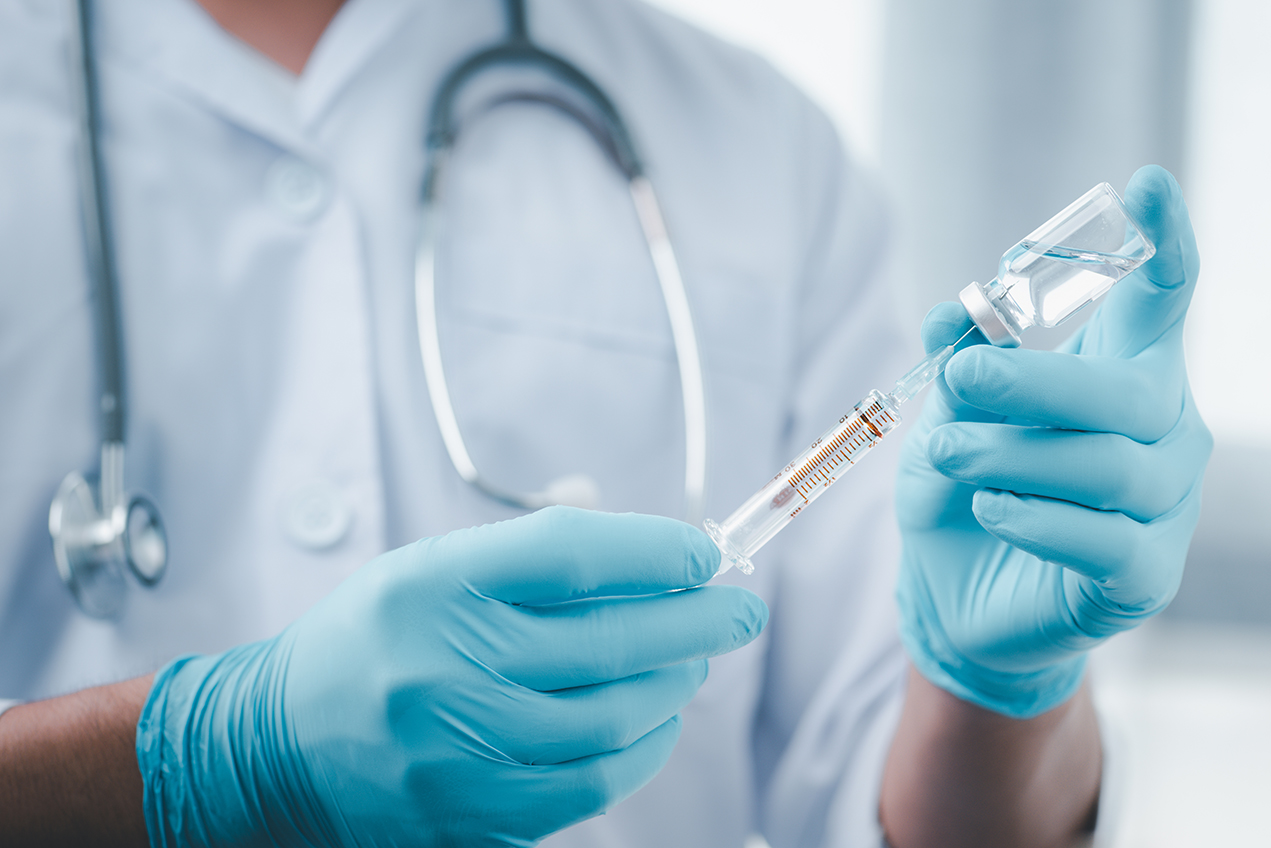News about a potential COVID-19 vaccine is announced almost daily, leading people to wonder when a vaccine will be available, and whether it will be safe. Edward Jones-Lopez, MD, MS, a Keck Medicine of USC infectious diseases expert and investigator of one of the Operation Warp Speed vaccine clinical trials, answers the questions on everyone’s mind.
How many potential COVID-19 vaccines are there?
Currently there are some 45 vaccine candidates testing in human clinical trials in addition to many being tested in animals. Researchers are using a wide variety of approaches to potentially stimulate an immune response in the body to protect against SARS-CoV-2, the virus that causes COVID-19. The most common type of vaccine candidate contains a virus that has been genetically engineered with coronavirus genes to provoke the intended immune response.
Can you explain the different phases of COVID-19 vaccine clinical trials?
After initial laboratory and animal testing is completed, vaccine candidates enter a Phase 1 human clinical trial, where a small group of people (10-50) receive the trial vaccine to determine the dosing of a potential vaccine, potential side effects of the administration of the vaccine and safety of the vaccine. Phase 2 expands to hundreds of volunteers where we continue to test a vaccine for safety and collect early data about the vaccine’s potential efficacy.
In Phase 3, the trial expands to tens of thousands of people to measure if the vaccine offers protection against SARS-CoV-2 infection or severe disease, and to continue to focus on safety in a diverse population. In the United States, the Food and Drug Administration (FDA) will approve a COVID-19 vaccine only after a successful Phase 3 trial. Several potential COVID-19 vaccines are currently in Phase 3 clinical trials, each including 30,000 or more volunteers.
How do Phase 3 clinical trials for potential COVID-19 vaccines work?
In these trials, one group of volunteers is randomly selected to receive the experimental vaccine, while another receives the placebo. Researchers then compare how many of those who were vaccinated become infected or ill with the coronavirus versus those who received a placebo. The FDA has determined that a COVID-19 vaccine must be at least 50% effective in preventing COVID-19 or, should someone contract the disease, in protecting against a serious case of COVID-19.
The trials are targeting high-risk-groups more likely to contract the virus or have severe complications to drive outcomes and get quicker results.
When will a vaccine be available and how effective will it be?
Some Phase 3 COVID-19 vaccine clinical trials are getting close to completing the enrollment of volunteers. We could see one or more vaccines become available three to six months after the completion of a trial’s enrollment, which could be as soon as early next year.
It’s likely that people may need to be vaccinated each year, just as for the flu, but we don’t know for sure yet.
Vaccines typically take five to seven years to be developed. How is one for COVID-19 being developed so quickly and how can we know it’s safe?
We are benefitting from previous work done over the last decades to find safe, effective vaccines faster. In addition, the manufacturing of a vaccine traditionally begins after the vaccine has been approved through a Phase 3 clinical trial. However, given the global emergency related to COVID-19, several state and private entities in the world have agreed to cover the costs of manufacturing millions of doses of potential COVID-19 vaccines during the clinical trials, shaving years off the process.
Despite the speed of development, scientists are adhering to the same rigid safety protocols for a COVID-19 vaccine that have been followed for all other previously approved vaccines and have proven to be safe, in some cases after several decades of use.
If someone is interested in volunteering for a trial, can they still participate?
Some half a million Americans have signed up to be part of a COVID-19 clinical trial, but more volunteers are needed to complete the trials, including people from high-risk populations and underserved communities. Anyone wishing to volunteer can register at https://coronaviruspreventionnetwork.org/.
Editor’s Note: Keck Medicine of USC is involved in an international Phase 3 clinical trial for a COVID-19 vaccine sponsored by AstraZeneca and the University of Oxford.


